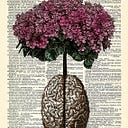Member-only story
Liam Neeson, racism, and the concept of moral luck
Our moral intuition is inextricably linked to random chance
A few months ago, Liam Neeson became the subject of a highly politicized scandal when he admitted to the following:
“I went up and down areas with a cosh, hoping I’d be approached by somebody — I’m ashamed to say that — and I did it for maybe a week, hoping some black bastard would come out of a pub and have a go at me about something, you know? So that I could kill him.”
It doesn’t help that a cosh apparently refers to a heavy stick used for bludgeoning someone. What could have provoked this twisted behavior? Neeson had just learned that his friend was raped by a black man, news that was enough to push the Academy Award-winning actor into a violent rage against anyone who looked like the culprit.
The public was promptly divided into two camps regarding the significance of these remarks. Some of us took them as a brave admission of personal fault: one that should be taken seriously, but also understood in the context of an overarching moral development. We are all faced with the misdeeds of our past, and strive to become better people as time goes on. Accordingly, we should be judged on our ability to admit to our moral shortcomings and integrate them into a coherent life story. In…
